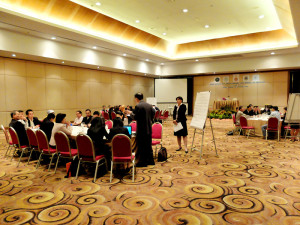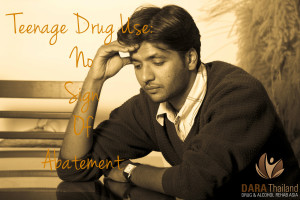 On June 19, the White House held a summit conference on Opioids, hosted by Office of National Drug Control Policy Acting Director Michael Botticelli. Calling the opioid problem in America an epidemic, Mr. Botticelli—himself a recovering alcoholic—introduced Attorney General Eric Holderer and Vermont Governor Peter Shumlin, who discussed possibilities for new ways to view drug addiction and offered their thoughts on how policy changes could be effected that could stem the tide of drug abuse.
On June 19, the White House held a summit conference on Opioids, hosted by Office of National Drug Control Policy Acting Director Michael Botticelli. Calling the opioid problem in America an epidemic, Mr. Botticelli—himself a recovering alcoholic—introduced Attorney General Eric Holderer and Vermont Governor Peter Shumlin, who discussed possibilities for new ways to view drug addiction and offered their thoughts on how policy changes could be effected that could stem the tide of drug abuse.
Among the items discussed was the potential for saving lives with the drug naloxone, which can reverse the effects of an opiate overdose and prevent respiratory arrest. Statistics were given indicating a fourfold increase since 1999 in annual deaths attributable to prescription pain medications (twofold for heroin). Doctor Nora Volkow, Nora D. Volkow, M.D., Director of the National Institute on Drug Abuse, gave a brief talk on the latest research into addiction.
To watch videos of the presentations, click on the following links:
- Opening Session
- Rx Drug and Heroin Epidemic in the States
Robert Morrison, Executive Director, National Association of State Alcohol and Drug Abuse Directors (NASADAD) - Panel I – Prevention, Intervention and Treatment
Dr. Hillary Kunins, Acting Executive Deputy Commissioner, Division of Mental Hygiene, Assisting Commissioner for the Bureau of Alcohol and Drug Use, New York City Department of Health and Mental Hygiene (DOHMH); Dr. Traci Green, Assistant Professor of Emergency Medicine and Epidemiology, Brown University; Dr. Josh Sharfstein, Secretary, Maryland Department of Health and Mental Hygiene - Panel II: Overdose and Infectious Disease Prevention
Nancy Hale, Program Director, Operation UNITE; Dr. Michelle Lofwall, Associate Professor, Departments of Psychiatry and Behavioral Science, Center on Drug and Alcohol Research, University of Kentucky College of Medicine; Dr. Ed Bernstein, Professor and Vice Chair for Academic Affairs, Emergency Medicine, Boston University School of Medicine - Addiction Research
Nora D. Volkow, M.D., Director of the National Institute on Drug Abuse
 Earlier in the month we had an opportunity to join the ASEAN Conference 2014: Addiction Treatment: Future Challenges and Opportunities.
Earlier in the month we had an opportunity to join the ASEAN Conference 2014: Addiction Treatment: Future Challenges and Opportunities. 1. Improve the academic cooperation in developing addiction treatment and rehabilitation system among ASEAN countries.
1. Improve the academic cooperation in developing addiction treatment and rehabilitation system among ASEAN countries. According to statistics, the
According to statistics, the 







